Fast, Compliant Service Across NJ, FL & GA
Commercial Grease Disposal & Recycling
Restaurants trust Grease Connections because we convert every drop of used cooking oil into clean fuel while keeping your kitchen code compliant. According to the U.S. Environmental Protection Agency (EPA) guidelines for used oil handlers, proper containment and documented recycling lower regulatory risk and operating costs. Our certified team supplies containers, schedules pickups around your service hours, and pays you for the oil we haul, maximizing value and in one seamless program.



★★★★★
Rated 5 Stars on Google
Get Paid Automatically
Schedule a free pickup; enter your information below we will get back to you within 15 minutes.






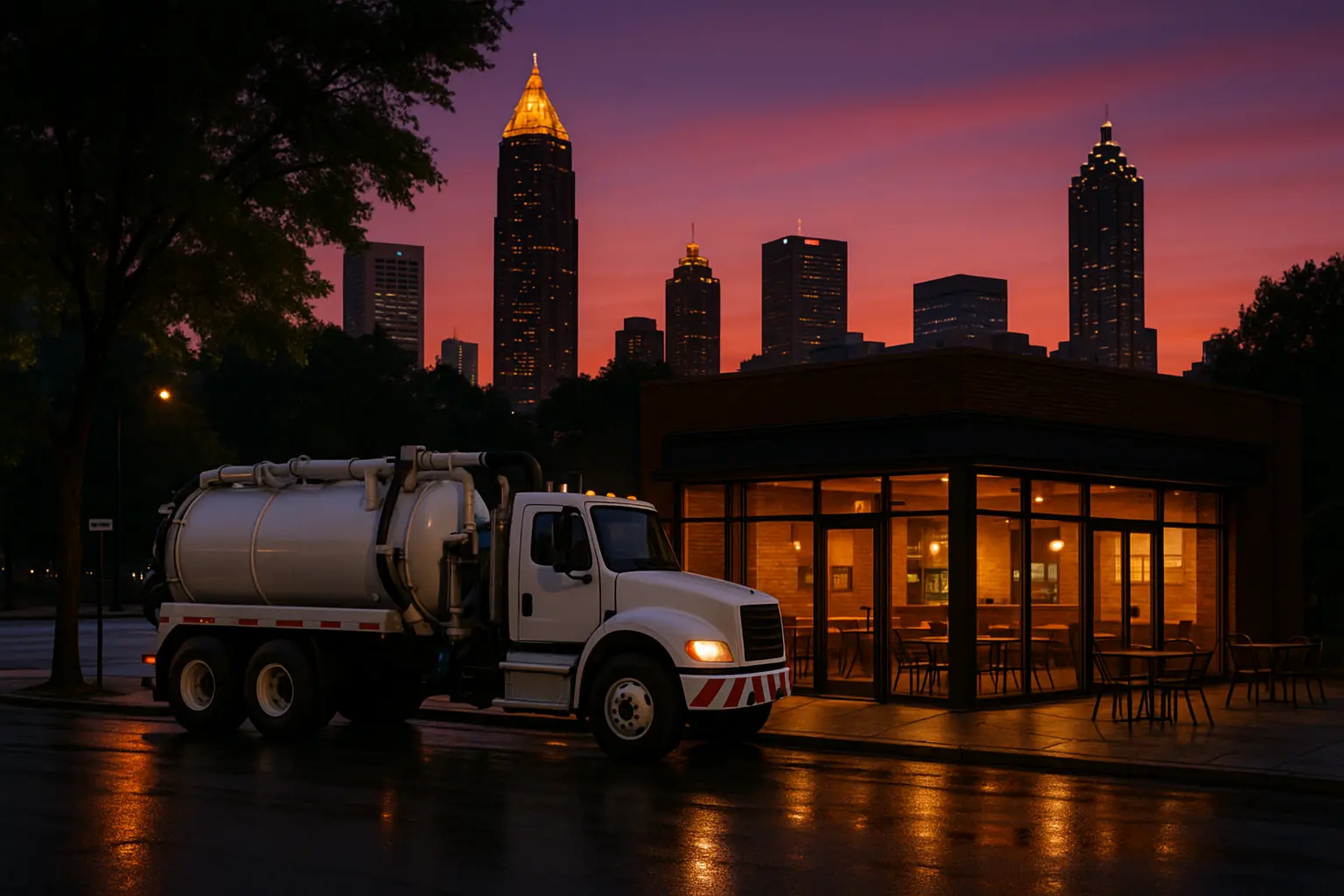
Why Responsible Grease Disposal Matters
Grease that enters drains solidifies, causing 47% of U.S. sewer blockages; EPA pretreatment data show cities that enforce fats oils grease (FOG) plans cut clogs by half. Commercial grease disposal also slashes carbon intensity: converting fryer oil to biodiesel can reduce lifecycle greenhouse gas emissions by up to 94%, according to industry research. Proper manifests protect you from hefty fines, and recycled grease earns revenue instead of racking up plumbing bills, turning a disposal headache into a profit center.
Our End to End Process
First, you request service online or by phone; we deliver the container size that fits your volume and kitchen layout. According to industry benchmarks, free containers with locking lids deter the grease theft that costs restaurants millions annually. Our licensed drivers scan your container barcode, pump the oil, and leave a digital manifest that meets EPA record keeping standards. Collected oil is filtered, dewatered, and refined into ASTM grade biodiesel, a process that captures energy otherwise lost to landfills. Funds for every gallon flow back to your account within seven business days.
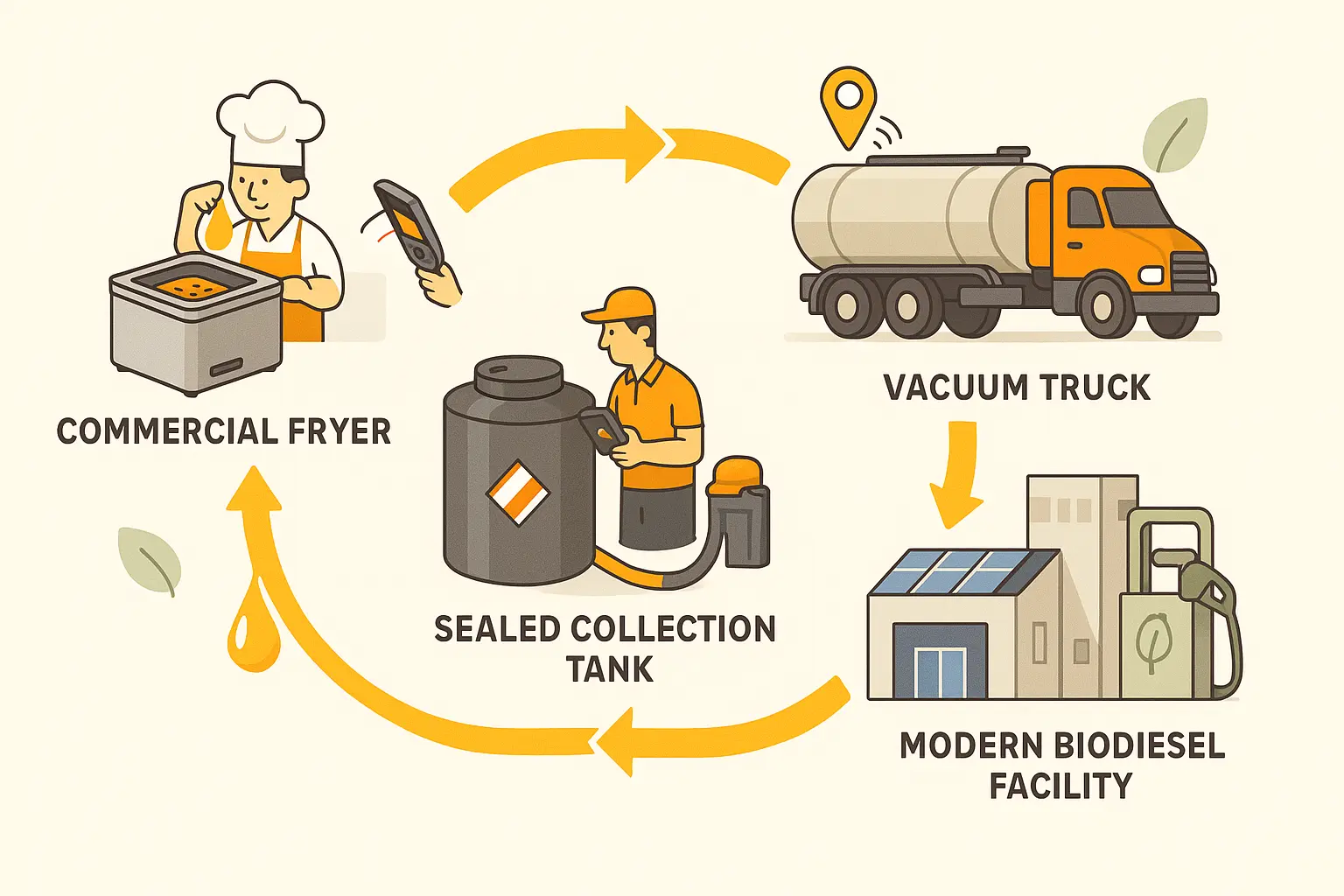
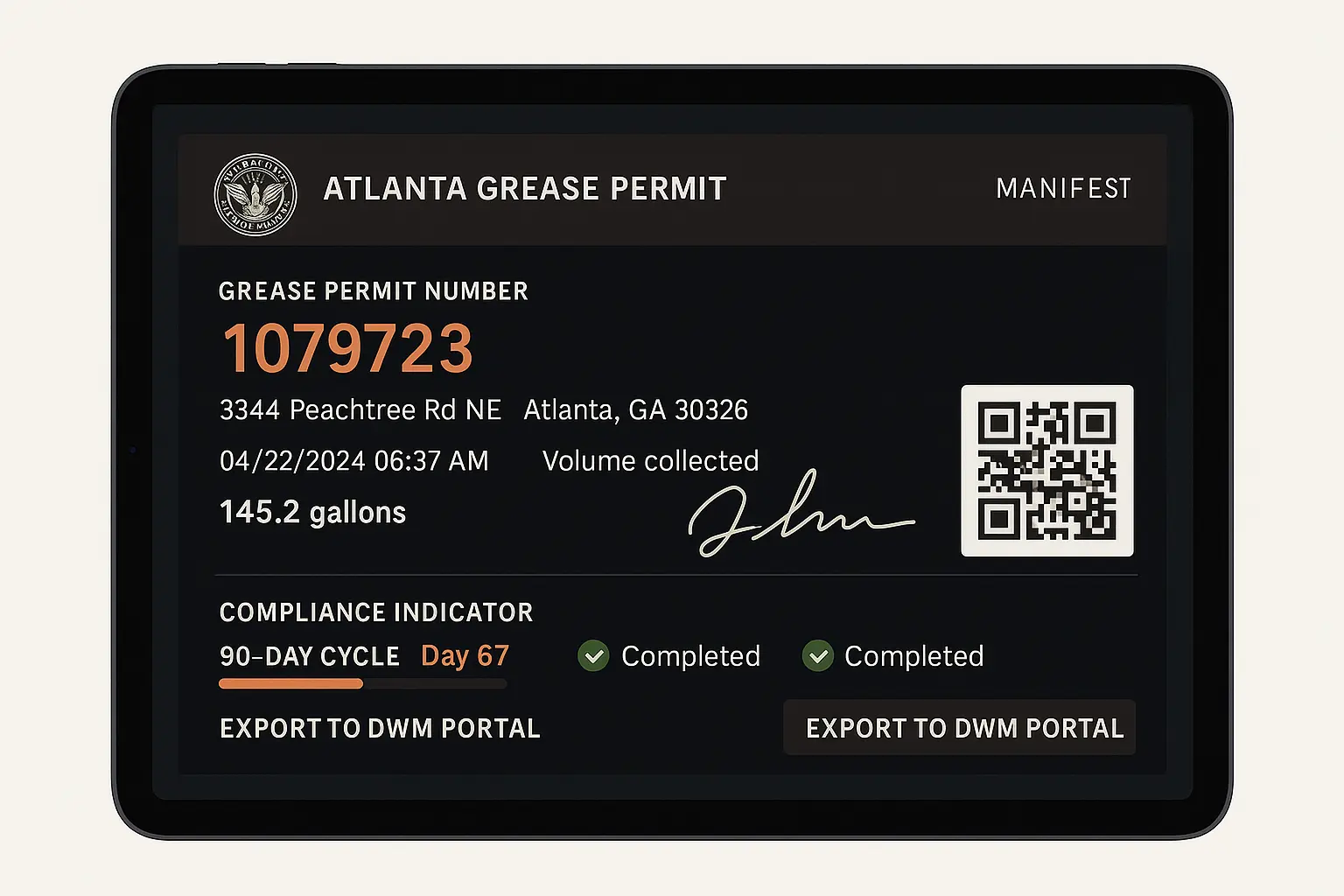
Compliance & Safety Credentials
Florida’s 2022 Grease Waste Law now requires oil waste disposal service providers to log each gallon removed and dispose only at permitted facilities. Grease Connections is registered with FDEP and follows the new Section 403.0741 manifest rules. Our crews maintain NFPA 96 fire prevention clearances when servicing rooftop interceptors, and they train under OSHA HAZWOPER 1910.120 for emergency spill response. We also consult local limits guidance to keep municipal pretreatment programs within Clean Water Act standards. Compliance paperwork is archived in your customer portal for instant inspection readiness.
Container Options & Footprint
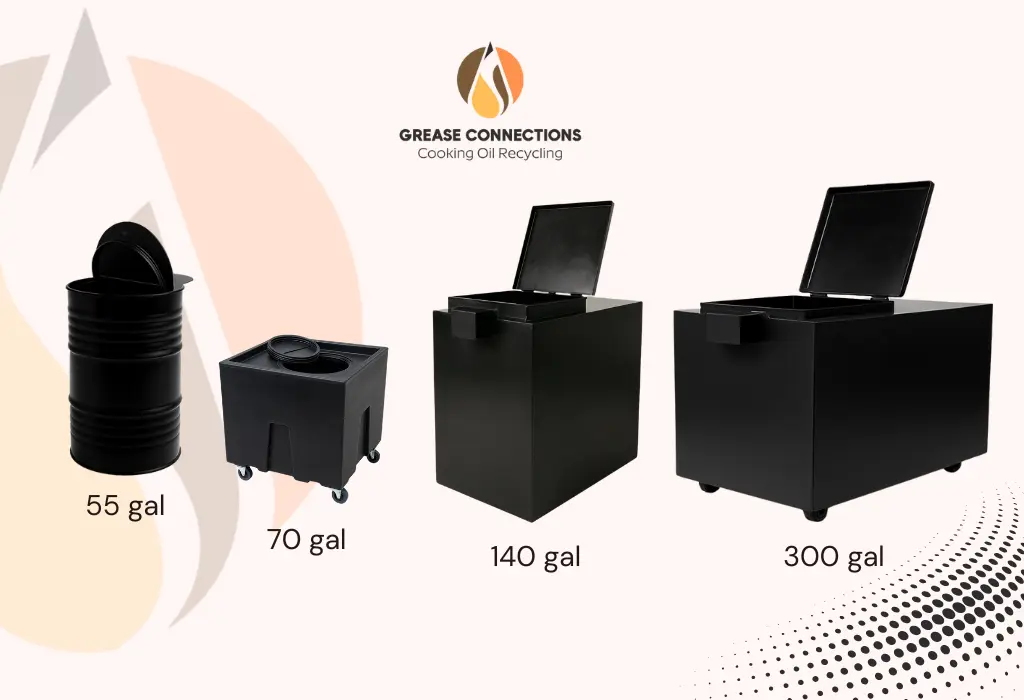
| Container Model | Capacity | Best Use Case | Approx. Footprint | Spill Guard Features |
|---|---|---|---|---|
| 55 gal Black Drum | 208 L | Low volume cafés | 23″ Ø × 34″ H | Lock ring lid |
| 70 gal Square Caddy | 265 L | Food trucks | 26″ W × 30″ D × 35″ H | Swivel casters, quick clamp |
| 140 gal Rectangular Tank | 530 L | Full service restaurants | 32″ W × 48″ D × 40″ H | Internal baffle |
| 300 gal Wheeled Tank | 1,135 L | Multi unit venues | 40″ W × 60″ D × 48″ H | Rear drain sump |
| Automated Pump Cart | Variable | High volume fryers | 20″ W × 24″ D × 42″ H | Heated hose, check valve |
Service Coverage & Response Times
Our network meets or beats Florida’s draft rulemaking target of 24 hour removal for critical sites.
| Region Served | Standard Pickup | Emergency Pickup |
|---|---|---|
| Florida (statewide) | 48 h | ≤8 h |
| Georgia (Statewide) | 72 h | 12 h |
| New Jersey (Statewide) | 48 h | ≤8 h |
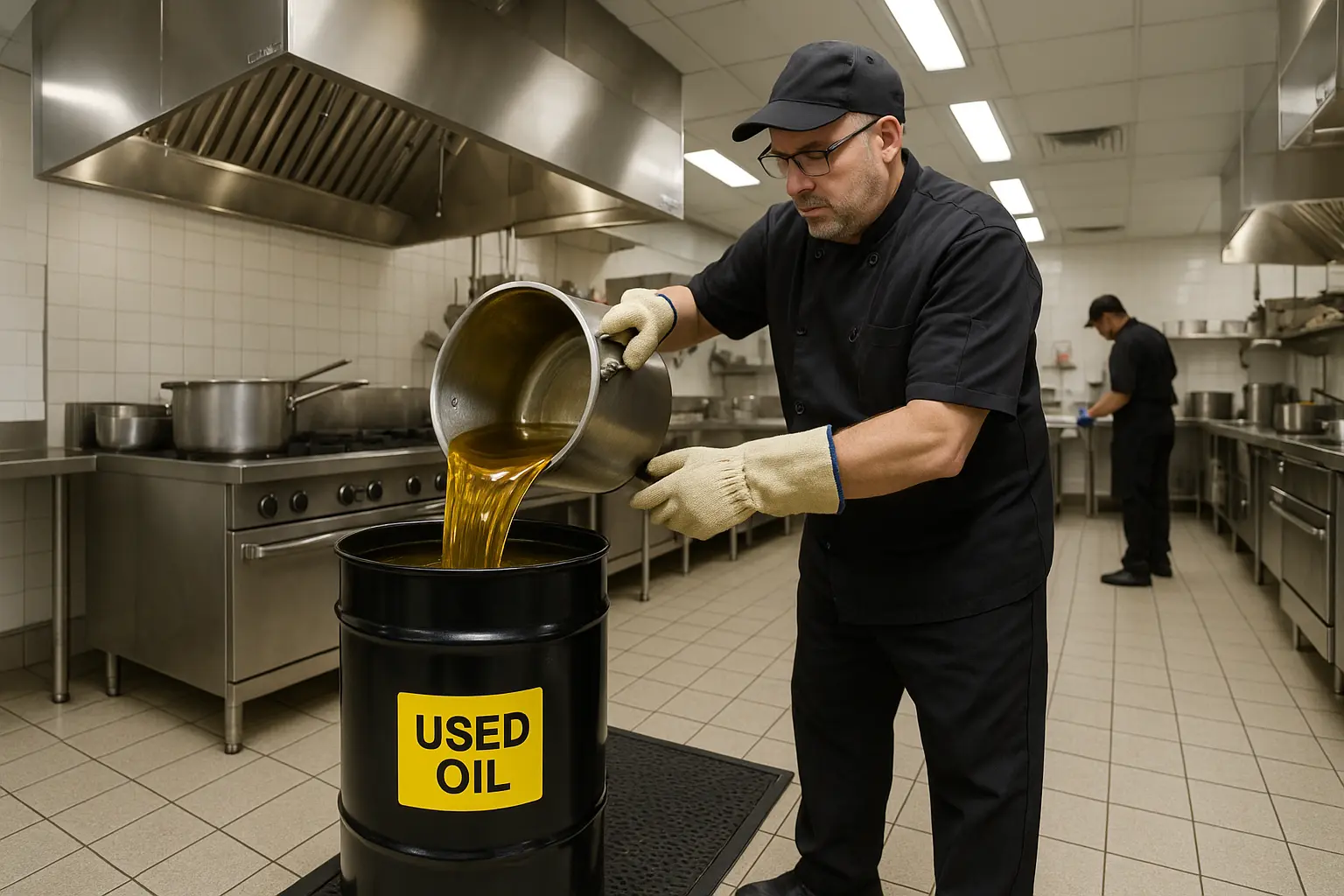
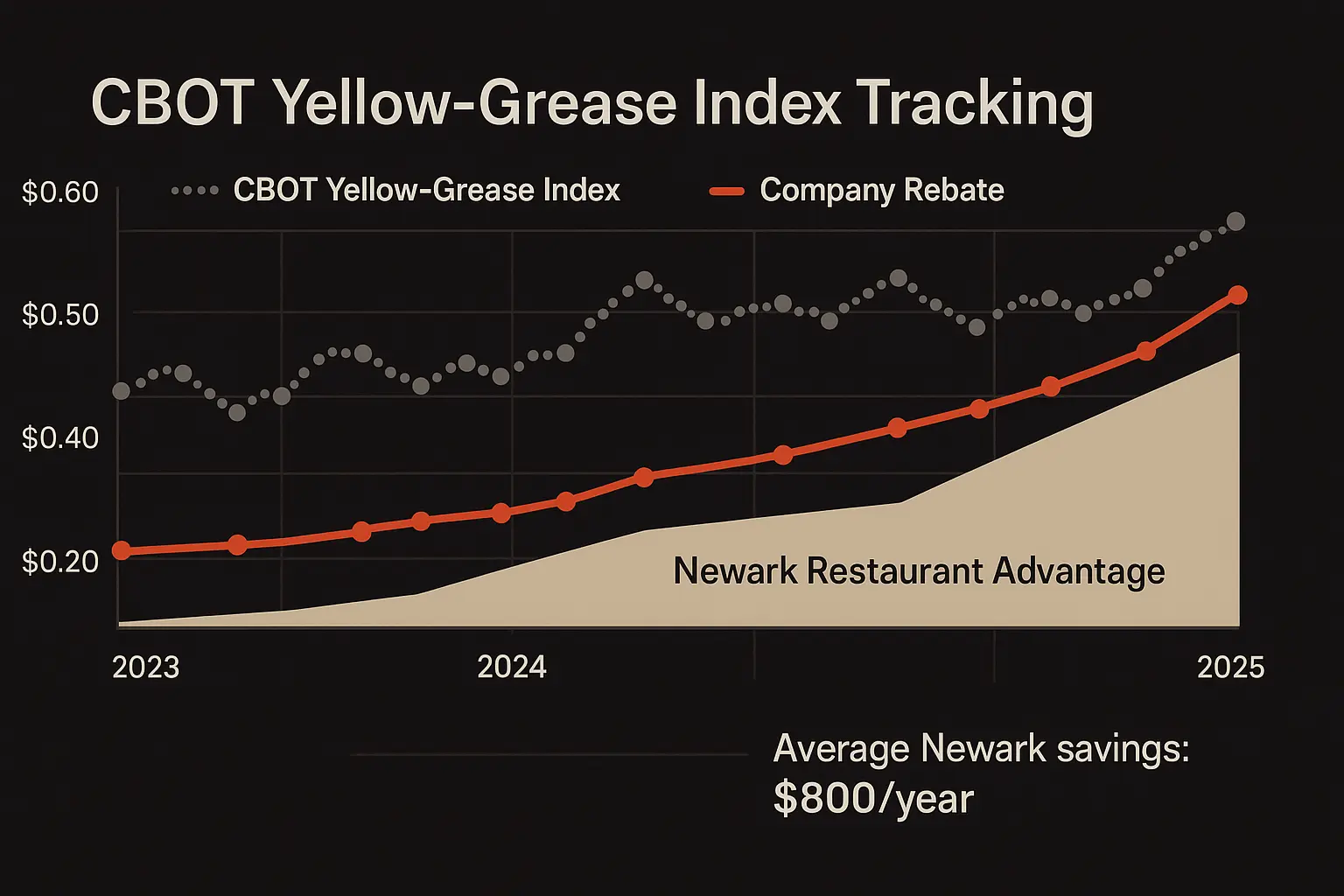
Transparent Pricing & Rebates
Oil markets value yellow grease as a biodiesel feedstock; spot prices reached record highs as demand surged, notes The New Yorker. We share that upside, paying you a published cents per gallon rate and indexing monthly. There are no container rental fees, call out charges, or hidden disposal surcharges. Detailed settlement reports let you track gallons, payouts, and carbon offsets, aligning fiscal and sustainability goals.
Grease Pickup FAQ
What types of grease and oil will you pick up?
According to the U.S. EPA’s used oil management rules, commercial generators may store any non hazardous fryer oil, shortening, or blended vegetable grease as long as each container is clearly marked “Used Oil” and remains sealed. Grease Connections follows that standard, so anything that meets those criteria is eligible for free pickup.
What if the oil contains water, food scraps, or cleaning chemicals?
If we detect more than 2% contamination by volume, typically water, breading crumbs, or detergent residue, we perform a no charge filter swap on the spot to protect downstream refining equipment. Research on waste oil pre treatment shows that excess solids and moisture accelerate free fatty acid formation and clog processing lines, so keeping contamination low preserves rebate value.
How do you stop thieves from siphoning my grease?
We install welded lid or locking screen containers and add optional GPS tags that alert us to unauthorized movement, methods recommended by industry suppliers to deter grease theft. These measures have proven effective at keeping yellow grease pilfering incidents near zero across our Florida, Georgia, and New Jersey service areas.
Where can I see my manifests or request an emergency pickup?
Every load is recorded in a digital manifest that satisfies FOG program record keeping rules under the Clean Water Act, giving you instant proof during health inspections. You can log into the customer portal 24/7 to download those manifests, change your pickup schedule, order an emergency haul, or track monthly rebate payments.
Schedule Your Free Pickup Today
Fill out the secure form below or call (888)-826-0201. Our dispatcher confirms your volume, assigns the right container, and emails a compliance checklist so you pass every inspection with ease.
Takes 30 sec; no payment ever.
★★★★★
